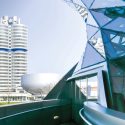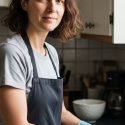SINGAPORE – A new facility for clinical trials looking into healthy ageing and the prevention of age-related diseases has opened at the NUS Yong Loo Lin School of Medicine.
The 350 sq m centre supporting healthy longevity research has state-of-the art equipment to evaluate, among others, skin and scalp health.
A dual-energy X-ray absorptiometry (Dexa) machine, which allows for a non-invasive assessment of bone mineral density and body composition, will arrive soon, said Professor Andrea B. Maier, director of the NUS Academy for Healthy Longevity, which was established around 1½ years ago.
The clinical trial centre comes under it.
“Our goal is to make sure that we can diagnose the biological age and biological ageing process of ageing individuals,” Prof Maier told the media ahead of the official opening on Oct 10.
The researchers at the centre will look into various ways of addressing that process, including by very precise lifestyle interventions based on one’s gut microbiome, for instance.
“If you (put) two 40- or 50-year-olds next to each other, you will see huge differences, even though they have the same chronological age… biologically, they are very different, because the pace of ageing can be different,” said Prof Maier.
“The question is, can we measure the pace of ageing – why they age, how much they age, and where the ageing process actually occurs?”
Healthy longevity medicine, known in the scientific community as precision geromedicine, aims to optimise health and healthspan by addressing the biological process of ageing throughout a person’s life.
It is a rapidly evolving field as researchers around the world strive to uncover the secrets to delaying ageing.







